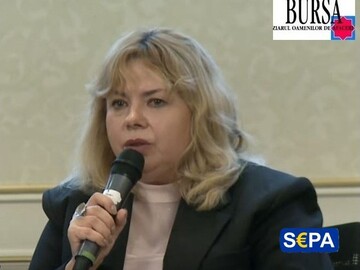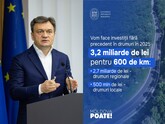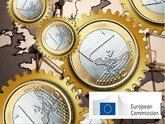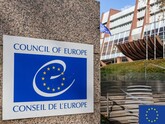
Moldova's accession to SEPA will reduce the cost of transfers and will result in savings for citizens of over 20 million euros per year, the NBM reported.
This was stated by the President of the National Bank of Moldova Anca Dragu, speaking about the evolution of the banking system of Moldova during the 4th conference "Financial and Banking Market", organized by Bursa, a well-known Romanian publication specializing in financial news. According to the National Bank of Moldova, the event was attended by representatives of state authorities, heads of the banking system, financial institutions and academia, who analyzed current problems and effective solutions for strengthening financial stability and sustainable development of the banking system. During the discussions, the head of the NBM spoke about the profound transformations that the Moldovan financial and banking sector is undergoing, emphasizing that the central bank plays a key role in coordinating the working groups on the 3 chapters of the negotiations with the EU: free movement of capital, financial services and economic and monetary policy. In this context, the NBM President highlighted the important steps taken by the institution to ensure that the banking system not only withstands shocks, but also supports the development of a modern and sustainable Moldova. Anca Dragu highlighted the importance of Moldova joining the Single Euro Payments Area - SEPA, which means lower transfer costs and expected savings for citizens of over 20 million euros per year. According to her, the fee for euro transfers to the European Union will be significantly reduced - from 30-50 euros to less than 1-3 euros. "This is a huge step and we have managed to demonstrate that Moldova meets European standards in areas such as preventing and combating money laundering and payment system infrastructure," the NBM President emphasized. At the same time, she drew attention to the importance of strong international cooperation and partnership in the financial and banking sector to ensure a credible assessment by international partners and to establish a clear development trajectory for the Moldovan financial sector. Anca Dragu noted the cooperation with the European Banking Authority on the equivalence of legislation, with the International Monetary Fund and the World Bank within the framework of programs dedicated to the financial and banking sector, as well as with the European Bank for Reconstruction and Development on capital market development. "We guarantee that we have the seal of the most important institutions regarding compliance with European standards and best practices in the financial and banking sector," the head of the NBM said. In the context of compliance with EU standards, Anca Dragu emphasized that the National Bank of Moldova will apply the same rules to the area defined as the EU Taxonomy, i.e. to "green" investments to stimulate sustainable financing. This objective is also envisaged in the EU Growth Plan for Moldova worth almost 2 billion euros, ratified by the Parliament on May 22. //26.05.2025 – InfoMarket.







